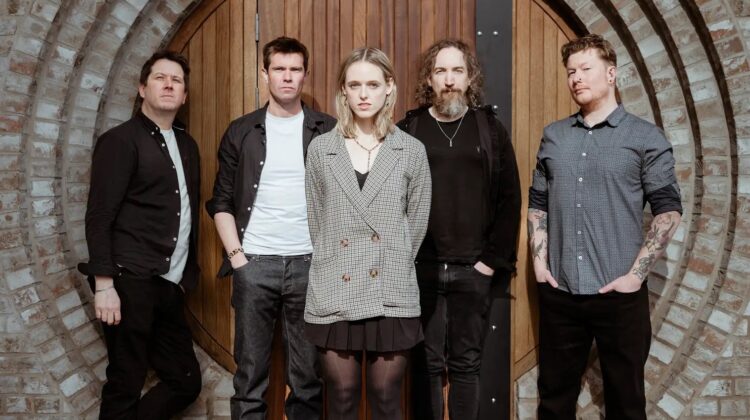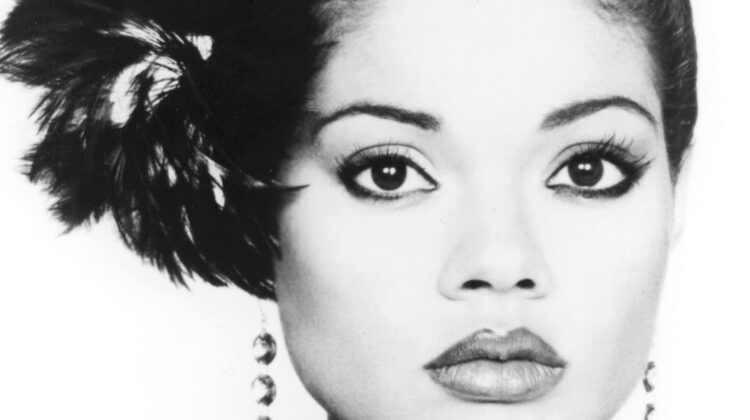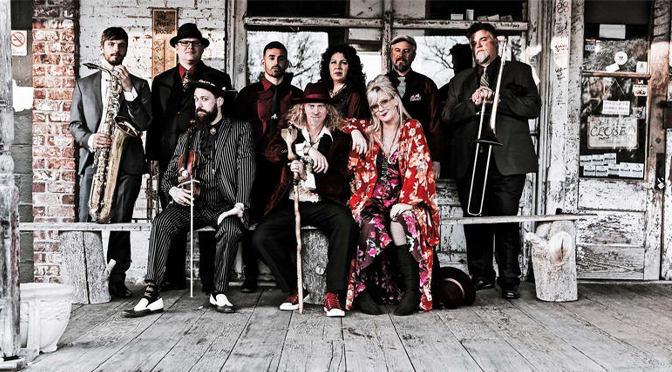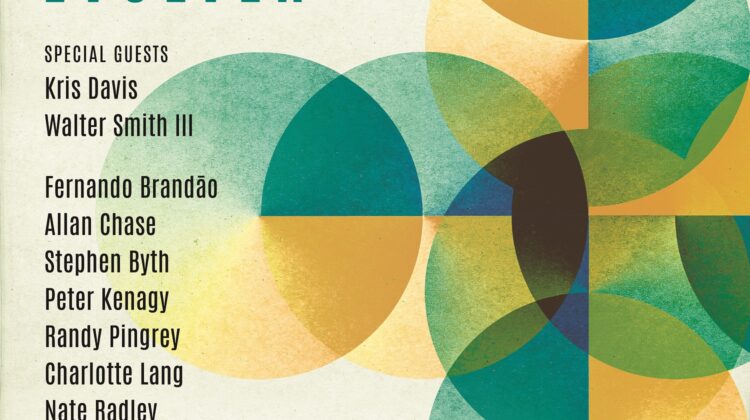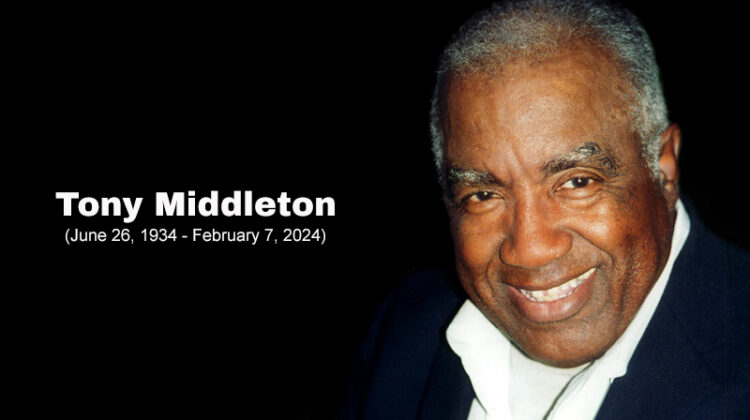By John Stevenson
Freddie Hubbard (1938 – 2008) was arguably one of the greatest jazz trumpeters and flugelhorn players in the history of jazz. His unmistakable tone and technique shone brightly on not only his own recordings but also in the bands of countless artists such as Sonny Rollins, Eric Dolphy, J J Johnson, McCoy Tyner, Art Blakey, John Coltrane, Herbie Hancock, Wayne Shorter and Oliver Nelson, to name just a few of them.
Freddie Hubbard’s jazz-fusion works released on the CTI label during the 1970s were no less distinguished.
Chanteuse and music academic, Suzanne Pittson, keeps the spirit of the late trumpeter/flugelhornist alive with her masterly recording, Out of the Hub: The Music of Freddie Hubbard.
The CD includes a host of tunes penned by, or associated with, the legendary Hubbard. Pittson wrote and co-wrote five lyrics for these tunes which received Hubbard’s blessing before he died in 2008.
Pittson brings on board top-notch musicians for her vocal tribute such as trumpeter Jeremy Pelt, bassist John Patittucci, multi-reedist Steve Wilson and husband, pianist Jeff Pittson.
It’s a session that Freddie himself would have been proud of. Suzanne spoke to me about the making of this landmark CD.
John Stevenson: You won’t be forgiven in some quarters for leaving out classics like Red Clay and Little Sunflower. How easy was it to make a selection of tunes written or associated with Freddie?
Suzanne Pittson: Of course, I love both of the tunes you mention, and have sung Little Sunflower on many gigs (with the Al Jarreau lyrics). There were just too many Hubbard tunes to choose from for the recording, and there are already many wonderful recordings of Little Sunflower and Red Clay, both instrumental and vocal. In 2003, I wrote lyrics to a number of Freddie’s tunes, which I performed frequently, with the goal of recording this project. However, our family’s move from San Francisco to New York in 2005 forced me to put the project on the back burner. In 2008, after getting acclimated to the East coast, I decided to record. The first thing I did was to secure John Patitucci to play bass, my colleague at the City College of New York. After visiting Freddie and speaking with his publisher Laurie Goldstein, I found out that Freddie didn’t own some of the tunes I had previously written lyrics for (they had unfortunately been appropriated by the record company in the 1960’s, prior to him forming his own publishing company). I quickly selected tunes from Freddie’s Hubtones catalogue, and began writing new lyrics. I have always been drawn to Freddie’s improvisational language, his unique linear style, and love the tunes that incorporate this style into the melody – such as One of Another Kind and Intrepid Fox. I also love many of the standards that Freddie recorded like You’re My Everything and Betcha By Golly, Wow. I also decided to write two vocalese lyrics, that is, to set lyrics to two of Freddie’s trumpet solos – on Crisis and Lament for Booker- the latter an homage to the brilliant trumpeter, Booker Little, who died at the age of 23. This incredible solo was definitely a challenge to sing and to write lyrics to – much like learning a piece of classical music. The story begins by praising the talent, commitment and contribution of Booker, who didn’t live long enough to hear the veneration. This moves into the dedication an artist must have to create their life’s work, and how the great musicians will play on eternally in our hearts, as we strive and toil to keep the jazz spirit alive for the future. Unfortunately, Freddie passed before we had completed the recording, and every time I perform Lament for Booker, I think of it as Lament for Freddie. His spirit will live on eternally in the history of jazz music!There are so many great Hubbard compositions that I could have selected a completely different repertoire and been very happy with it. But at that moment, these were the tunes that resonated with me. I will probably add more for live performances.
JS: How long have you been a fan of Freddie Hubbard and why does his music appeal to you?
SP: I first heard Freddie with the VSOP – with Herbie Hancock, Wayne Shorter, Ron Carter and Tony Williams – when I was a teenager. This concert made a huge impression on me, and I was forever hooked. At the time, I was studying to be a classical pianist; however, growing up in a family of jazz musicians, I had gone to jazz clubs and festivals my entire life. This was different somehow – this was something I discovered on my own. When I was in college as a classical pianist, I encountered some hand problems, and though I completed my Bachelors and Masters degrees, I decided to find another means of creative expression – my voice. With years of piano study under my belt, I approached singing like an instrumentalist, and determined to master the horn language. I began transcribing and singing Freddie’s solos, each of which is a masterpiece, I might add. When I married Jeff, ironically a fellow Freddie fan, we had a cassette tape of nothing but Freddie solos, that we fondly called “the Freddie tape.” That tape was a real treasure trove, and we listened and copied and analyzed. Freddie was both a great composer and improviser, though I believe his tunes were written as vehicles to express his ever-deepening harmonic language in his solos. Both have a sense of order – and a hip, yet melodic use of the post-bop jazz lines.
JS: What was it like meeting Mr Hubbard for the first time? What did it feel like when he gave your tribute project the green light?
SP: It was a thrill to meet Freddie, and tell him that he was my idol. Ironically, he was talking to someone in front of us backstage at the Iridium Jazz Club and said that Clifford Brown was his idol though he never met him. I think musicians understand the important relationship between mentor and disciple, or teacher and student, so it was very fulfilling to express my gratitude in this way. I was able to say the same thing to Michael Brecker before he passed. Freddie was very moved and receptive to the idea of lyricizing his music, and encouraged us to contact his publisher, Laurie Goldstein. Shortly before the session, Freddie requested a demo, just to make sure I could execute his complicated compositions. He called Jeremy Pelt to get his input saying “I just don’t know how a singer is going to be able to sing my music.” Jeff and I prepared a quick demo of a couple of his tunes with the new lyrics, and when he heard where I was coming from, he approved the lyrics. I deeply appreciate the trust he placed in me, and determined to do my best to treat the music with the highest respect.
JS: You and (husband) Jeff sound like a very cohesive pair. His solo spots and accompaniment, throughout, bear the hallmarks of a thorough, if underrated professional. How valuable was his assistance in the overall conception?
SP: Yes Jeff is totally underrated! He’s a wonderful musician who embodies the jazz spirit of true spontaneity. I am always surprised and inspired by the things that he plays. Playing with him forces me to really listen and interact rather than just sing ideas that are safe and worked out. It’s a thrill. His assistance in the overall conception was invaluable, and I thoroughly trusted him to write arrangements that would enhance the tunes while staying true to Freddie’s original intent. He knows my voice and what I’m going for as an improviser, so the solis (vocal lines sung in unison with an instrument) he wrote on Gibraltar (Our Own), True Colors (True Visions) and Byrd Like (Like a Byrd) are much more challenging than what most musicians would write for a vocalist.
JS: How challenging was it to have come with some creditable lyrics for familiar Hubbard compositions like Crisis and Byrdlike?
SP: It was very challenging and I sat with a blank pad for a long while. Though once I got the concept in my mind, the ideas started to flow and it was invigorating. I used the titles as the themes and wrote stories around them. For Crisis, I decided to write lyrics to the tune as well as Freddie’s solo from the recording entitled Mosaic, with Art Blakey and the Jazz Messengers. I wrote a story about a crisis in a personal relationship caused by lies and deception, and moved on to the need for dialogue in order to resolve the world crisis.
JS: You selected Jeremy Pelt for the trumpet spot who more than adequately acquits himself to the task given the big shoes he is asked to fill. Are there specific qualities that Jeremy brings to this project?
SP: Jeremy is a marvelous musician and a nice person. Plus Freddie really liked him. I think Jeremy offered great, swinging solos to the record, which is exactly why I hired him!
JS: How long have you been on the faculty at CCNY, and how does your work in the classroom compliment your performances on the bandstand?
SP: I moved from San Francisco to New York in 2005 to take this job as Assistant Professor of Jazz Vocal Studies at the City College of New York. Sheila Jordan preceded me at CCNY, teaching the jazz vocal workshop for 27 years, and raising many vocalists along the way. The department decided they wanted someone to design a jazz vocal curriculum and help to build the program. Since that time I have developed classes such as Jazz Vocal Repertoire, Jazz Vocal Improvisation, Musicianship for Jazz Vocalists, Blues Vocal Workshop, and the Jazz Vocal Ensemble, and we are attracting jazz vocalists from around the globe. As an educator, I try to share my own process as an artist – teaching the vocalists how to develop their musicianship. If they develop solid musicianship skills, their original styles will evolve naturally. I’m mostly interested in our school producing strong musicians who can make their mark in the music world. In keeping with this idea, we have also added a Studio Singing Course, taught by Carolyn Leonhart, that will help the vocalists learn first-hand what is required of them in a more commercial setting. I do believe that my teaching work has helped me continually refine my own musical and performance skills.
JS: Your vocal suppleness and jazz training enables you to become another instrument altogether. This is borne out in among other aspects, the high-quality scat singing to be found on your recordings. Who have been your mentors and influences in the art and craft of jazz song?
SP: There have been several things that have helped me develop. I played piano from a young age, and did Bachelors and Masters degrees in classical piano at San Francisco State University. I encourage all my students to learn basic piano in order to develop their improvisation skills. I also studied classical voice for a period of time, singing Italian art songs, opera arias, and 20th century songs such as 12 Poems of Emily Dickenson by Aaron Copland.Carmen McRae has been a huge influence on me, in terms of phrasing and delivery of a lyric. That combined with study of the instrumentalists, namely Freddie Hubbard, Michael Brecker, Miles Davis, John Coltrane, and many others is what has helped me create my style. I would say that my style has evolved from study of the modern horn players. Whether I’m singing lyrics or scat, I always strive to create a melodic line that defines the chord changes. This was also Carmen’s intention, coupled with a sincere desire to convey the meaning of the lyrics. From the beginning I have transcribed and sung horn solos, with the determination that I would one day become an improviser of the caliber of my mentors. This is a much loftier goal than I had anticipated; but because I don’t give up or become complacent, I believe I’m getting closer.
JS: Have you had an opportunity to tour in support of this Freddie Hubbard recording?
SP: I did play in New York and California. It was so much fun to perform this music live and allow it evolve. I look forward to touring in support of the Freddie Hubbard recording in the future.
JS: How does this new project compare to your other mammoth undertaking of the 1990s: The “A Love Supreme” tribute to John Coltrane?
SP: Freddie’s compositions are very different from ‘Trane’s. They both have their challenges. I loved doing “A Love Supreme.” It was a life-altering experience and I have continued to perform the entire suite to the present. In fact, I have performed it three times since moving to New York.Working on Freddie’s compositions really forced me to develop my modern instrumental approach, a necessity when improvising on these tunes. I’m a better singer than I was ten years ago when recording “Resolution,” and digging deeply into Freddie’s music, seeing his original lead sheets, and feeling a sense of responsibility helped me take a huge step forward in my development. I love these kinds of challenges.Writing lyrics to these instrumental compositions has inspired me to write my own music. Hopefully my next project with be comprised of originals!

